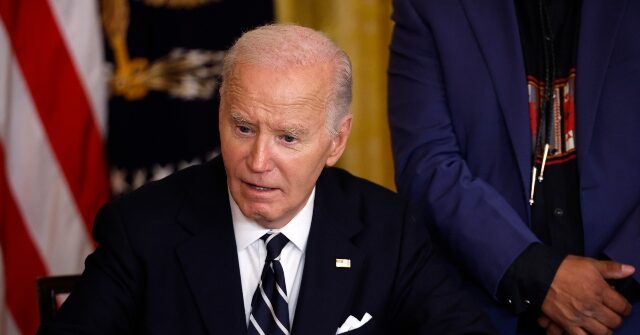President Biden’s recent warning about the dangers of a “tech oligarchy” stands in stark contrast to his administration’s unprecedented access granted to Microsoft, whose executives made more than 200 White House visits during his term. The extensive access, particularly to national security officials, raises questions about the administration’s relationship with big tech amid several cybersecurity crises and controversial deals.
In his farewell address to the nation, President Joe Biden warned of the dangers posed by a “tech oligarchy” and a “tech industrial complex” dominating the American economy and political landscape, a clear shot across the bow of Trump supporters like Elon Musk and Peter Thiel. However, a deeper look into his administration’s extraordinary relationship with Microsoft raises serious questions about the credibility of his dire warning.
During his administration, Microsoft executives visited the White House more than 200 times, involving 82 different executives, according to visitor logs analyzed by the Foundation for Freedom Online. This level of access equals or even surpasses the influence wielded by Google during the Obama years, when the administration was criticized for being too cozy with Big Tech. The revelations suggest a troubling level of influence wielded by tech companies over Democrat administrations – Google during the Obama years and now Microsoft, particularly over critical cybersecurity policies during the Biden years.
The hundreds of meetings with White House officials not only highlight Microsoft’s proximity to the Biden administration but also reveal how the company strategically targeted the most sensitive areas of government. Roughly one-third of these meetings involved officials from the National Security Council (NSC), with Microsoft executives engaging directly with top national security figures such as Jake Sullivan and Jon Finer.
As Wired reported this week, Sullivan and the Biden White House served as Microsoft’s lackeys in brokering a $1.5 billion deal in which the company acquired a minority stake in G42, an Abu Dhabi-based AI company founded by Tahnoun bin Zayed al Nahyan, the United Arab Emirates’ intelligence chief. The deal has raised fears among the U.S. intelligence community given G42’s close ties with China.
On May 12, 2021, Microsoft President Brad Smith met with senior NSC advisors on the same day Biden signed an executive order addressing the SolarWinds cyberattack — a breach that exposed vulnerabilities in Microsoft’s systems and compromised federal agencies. Microsoft’s lobbying efforts during the SolarWinds fallout were designed to shield the company from scrutiny while promoting its security products to federal agencies. These products generated billions in revenue from government contracts, with national security-related agencies contributing over $12 billion to Microsoft since 2018.
The timing of several key White House meetings suggests that Microsoft leveraged the crises stemming from SolarWinds and the Exchange Server breach to expand its federal footprint. For instance, on May 24, 2021 — just days after Biden’s executive order on SolarWinds — Microsoft executives Jason Zander and David Pritchard met with Deputy National Security Advisor Anne Neuberger. Zander, responsible for Microsoft’s federal engagements, met with White House officials on at least six occasions during Biden’s term in office.
Critics argue that Microsoft’s efforts were less about resolving vulnerabilities in its products and more about marketing its cybersecurity services to government clients. A scathing 2021 report by CyberReason accused Microsoft of prioritizing profit over security, leaving customers — including the federal government — exposed to repeated cyberattacks.
President Biden’s parting words about a tech oligarchy dominating the U.S. economy are at odds with his administration’s favoritism toward Microsoft. By granting the company unparalleled access to top officials, Biden’s White House appears to have embraced the very dynamics he now decries.
Forbes reports that just four days before the end of his presidency, Joe Biden issued an executive order titled “Strengthening and Promoting Innovation in the Nation’s Cybersecurity” on January 16, 2025. Forbes notes:
Moreover, the executive order’s emphasis on established frameworks like NIST guidelines and FedRAMP certifications raises concerns about potential vendor favoritism. While these programs are well-regarded, they inherently benefit vendors who are already certified, sidelining newer or smaller players who lack the resources to navigate lengthy certification processes. This could unintentionally stifle competition in the cybersecurity space.
President-elect Donald Trump has positioned himself as a critic of Big Tech monopolies. In his previous administration, Trump’s Department of Justice launched major antitrust lawsuits against Google and Facebook, signaling a willingness to confront entrenched corporate power. Insiders suggest that top antitrust picks like Pam Bondi at the Department of Justice and Andrew Ferguson at the FTC will be much tougher on “tech oligarchies” than either the Biden or Obama Administrations.
In reality, Biden’s dire warning of a “tech industrial complex” is something that occurred under his watch.
Lucas Nolan is a reporter for Breitbart News covering issues of free speech and online censorship.
Breitbart News
Read the full article .


